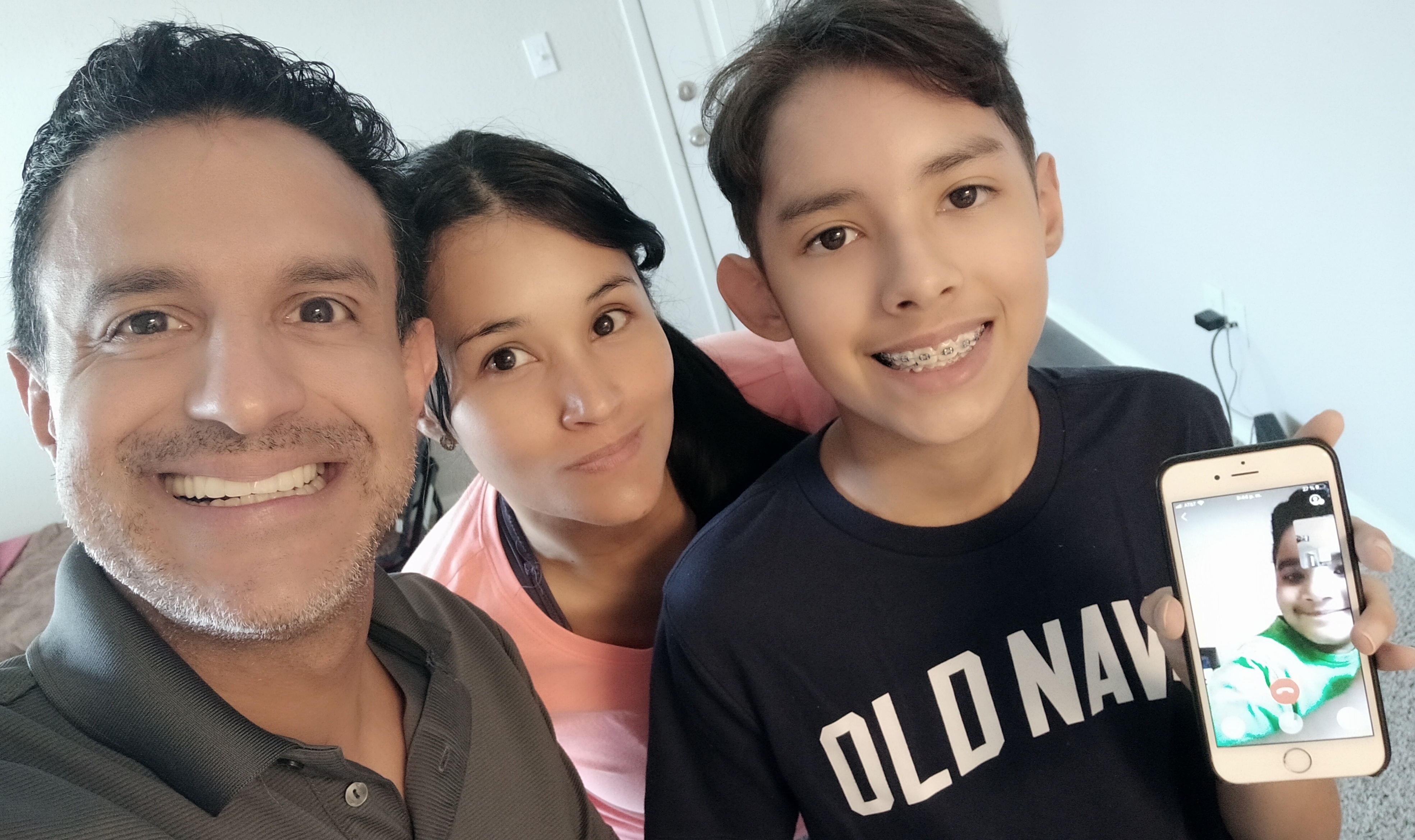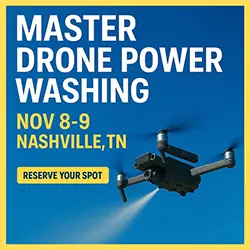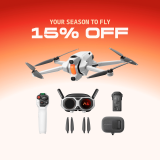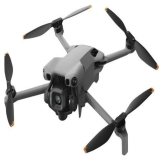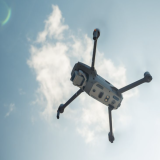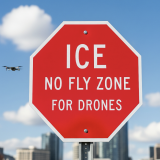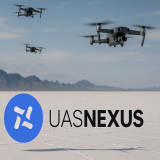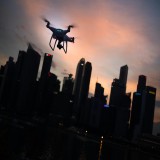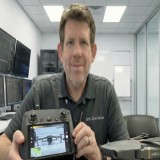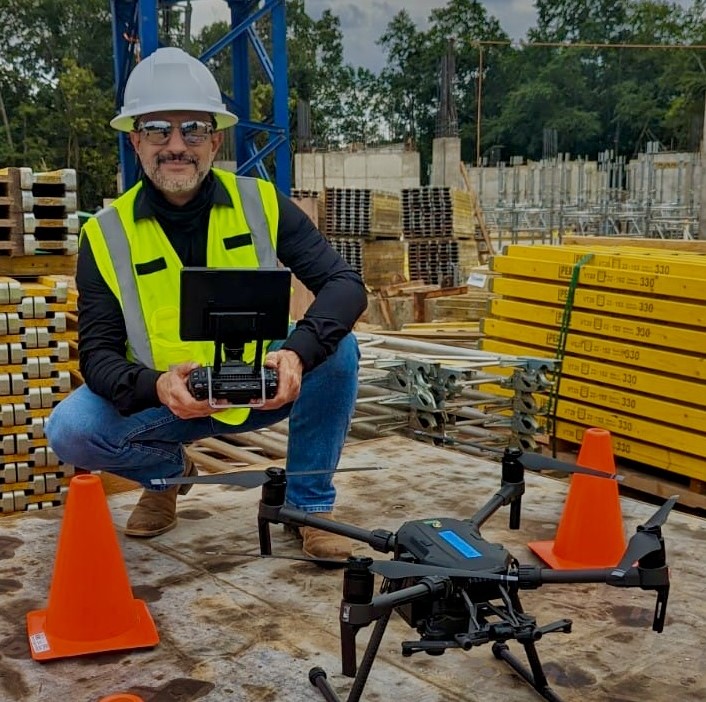
22 March 2023
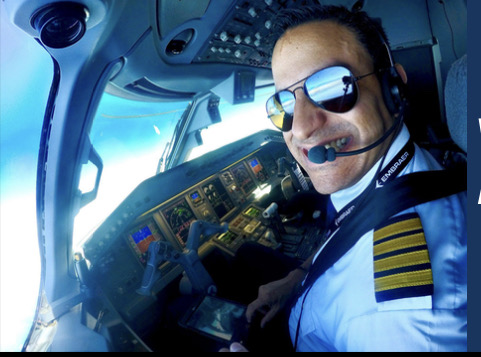
By Oswaldo Enrique Navarro Velazquez
I am married, the father of two children, an airline transport pilot, and a descendant of a family with aeronautical tradition.
My father was an active military fighter pilot against the regime of Marcos Perez Gimenez, which raised a wave of consequences towards my family during these 22 years of genocidal revolution in Venezuela.
Before the 1998 elections, the coup leader Hugo Chavez Frias had already positioned much of his plan to install his genocidal dictatorship in Venezuela for years. My older brother and I couldn't follow in our father's footsteps in the Air Force, because our surname was already identified as anti-socialist, and now, I understand everything. I became a Civil Pilot amidst many difficulties. In the 1998 elections, I voted for candidate Irene Sáez, but unfortunately the coup leader Hugo Chávez was installed in Miraflores.
Since the consultative referendum in 1999, we began to peacefully protest in the streets of Caracas against the Constituent Assembly. In 2002, I was injured by shotgun pellets in my back, right side of the torso, and forehead from National Guard beatings. Repression was already overwhelming. We were in a war zone and at a disadvantage.
I decided to focus on my aeronautical career and try to confront the dictatorship from another angle.
In 2001, I started working at Santa Bárbara Airlines and traveling to Europe to receive flight training in Toulouse, France, in the ATR simulators at Airbus facilities. Those trips opened my eyes even more to realize how serious things were getting in Venezuela. The group of pilots who signed against the regime were penalized with labor purges until the oil strike, and we had to leave the country.
In 2003, I came to Miami for the first time to wait for an interview to work at Bonairexcel Airline. The time extended, and I was very poorly advised by my ex-wife, who had already lived in this country, which is why I divorced and went to Bonaire. In October 2004, the situation was very unstable at Bonairexcel, and it lasted very shortly. Having gained some experience and now as a captain, I went to Venezuela to renew my pilot certificate before the aeronautical authority, where I met a director of Avior Airline. They offered me training at Flight Safety, Canada, in the Beechcraft 1900D aircraft.
Since then, the rivalry between civilian pilots began with the imminent wave of military pilots entering the country's airlines trying to impose their Castroist doctrines. From 2005, my fight was purely aeronautical. Private airlines were forced to operate with aircraft from the 1960s and 1970s. All positions in the aeronautical authority were—and still are—only granted to regime-loyal military personnel, and we were increasingly pushed back.
In March 2008, I traveled to Miami to try to process the renewal of my license with the FAA to be able to unlink myself from the Venezuelan aeronautical authority at the service of the INAC regime. Still, I was arrested by immigration agents at Miami airport, locked up in a dark office, and the next day I was deported to Maiquetia. I was handcuffed and handed over to the American Airlines flight crew with my visa revoked. Without an American visa or FAA license, I was forced to continue working at Conviasa until 2010, when I was able to renew my American visa, as well as process visas for my wife and son, Alonso.
But the fear of traveling to the United States has been with me since that night I spent locked up by immigration agents.
In August 2010, I was threatened in the worst political dispute perpetrated by the Operations and Maintenance directors of Conviasa Airline for trying to demonstrate to the accident investigation board that the Conviasa ATR 42 plane that crashed in Puerto Ordaz had been flown and reported to maintenance by me for flight control failures 24 hours before the accident, and was not properly repaired. Still, it was irresponsibly put into the flight line. Fifteen people died, including two fellow civilian pilots. They were flying Boeing and CRJ planes in good condition, while we civilian pilots were flying old, poorly maintained ATR planes.
Due to political purges and threats against my life, I had to leave the country again. I was suspended from flying when the director changed, so I requested vacation time and managed to get my wife and son on the Conviasa Airbus 340 for our trip to flight training in Toulouse, France. After disembarking in Madrid, we fled to our friends' house in Tenerife to organize ourselves and then we traveled to Mumbai via Brussels—this time, to work for Jet Airways as a Senior Commander of ATR 72 500.
It was tough to get there during currency controls and no access to foreign currency, but fortunately it was a good contract, and I was able to live in Mumbai, Chennai, and Hyderabad with my family until we had enough money to finish building our house in Venezuela. We hoped to be able to return when there were free elections, and the country took a different direction.
In 2011, the Air India union began protesting foreign pilots, and, by 2012, we had to return to Venezuela. I was unable to work as a pilot for months due to my different political views and my opposition to the regime, until the language barrier became an obstacle for the military infiltrated in PDVSA and Conviasa. ICAO implemented minimum Level 4 language proficiency for operating flag flights—which means flights outside of Venezuela—and there were few certified bilingual captains in the country.
While the Venezuelan aviation industry took a hard hit, everyone rushed to study English as if it were a magic injection, and in a few days, they were already speaking English.
In 2012, Alonso was diagnosed with Autism in Caracas, and we needed to move to either Maturin or Caracas—the two cities with therapy institutions for him. In the same year, I was offered a job in the Beech 1900D aircraft fleet of PDVSA in Maturin, due to my previous experience in the aircraft and my Level 6 English proficiency. I had an economic need and a desire to return to flying to try to place myself back in the industry and qualify again for an aircraft that would allow me to leave the country and take on a contract in Asia once again, as my ICAO Flight License and nationality did not allow me to work in the USA or Europe.
In 2013, dictator Hugo Chavez passed away, and during the days of his wake with the wax doll, I was coerced to carry two large wooden boxes containing what were purported to be the bodies of two Cubans to be repatriated. However, there was no one mourning these bodies, and the intense security provided by BAE and DIGECIN made me doubt the truth of the cargo. I was threatened and forced to take off from Maiquetia while being targeted by two armed men with assault weapons.
During the flight, I was reprogramming the route and calculating my fuel range to try to avoid landing in Havana, declare an emergency and proceed to Miami. However, the cockpit door was not armored, and the escorts were alertly watching through the windows. It was evident they knew the route and noticed I was not beginning the descent at the usual point. After all, my family was still in Venezuela, so it wasn't a good plan. We took a few hours, and upon returning to Venezuela, I resigned from PDVSA, and remained unemployed for some time.
In 2014, Conviasa came under the control of other directors, and despite the political purge, they needed bilingual captains, and they offered me to come to Houston for Flight Safety training, this time on an ATR, with the intention of making me an instructor for that aircraft. However, the operation didn't last long, and the ATR fleet was left forgotten on the platform, becoming more pieces for the Maiquetia transport museum. A few months later, I was sent to St. Louis, Missouri, for Initial Training on the Embraer 190 as a captain. That was my chance to qualify for a last-generation jet, which would give me the possibility of leaving the country after accumulating at least 1000 hours of experience. I completed the training, and according to my plan, when I had nearly 1200 hours of flight time, we had the opportunity to apply in Asia.
In 2015, the opposition in Venezuela won the parliamentary elections, and, somehow, the abuses with the hours of service towards pilots who could make international flights played in our favor to quickly accumulate the necessary hours. However, when they detected it, they started pretending to make us sign loyalty agreements that we didn't sign, and due to the political purge, a group of civilian captains had to resign in 2016, leaving us trapped by the regime of the dictator, who was put in power by the Military Croupiest Hugo Chaves, now Maduro, leading the Narco Regime. They ordered the Aeronautical Authority INAC to deny us license verification letters, and we couldn't apply to work in Asia, flying A320s. There were contracts of over $320,000 per year, after taxes.
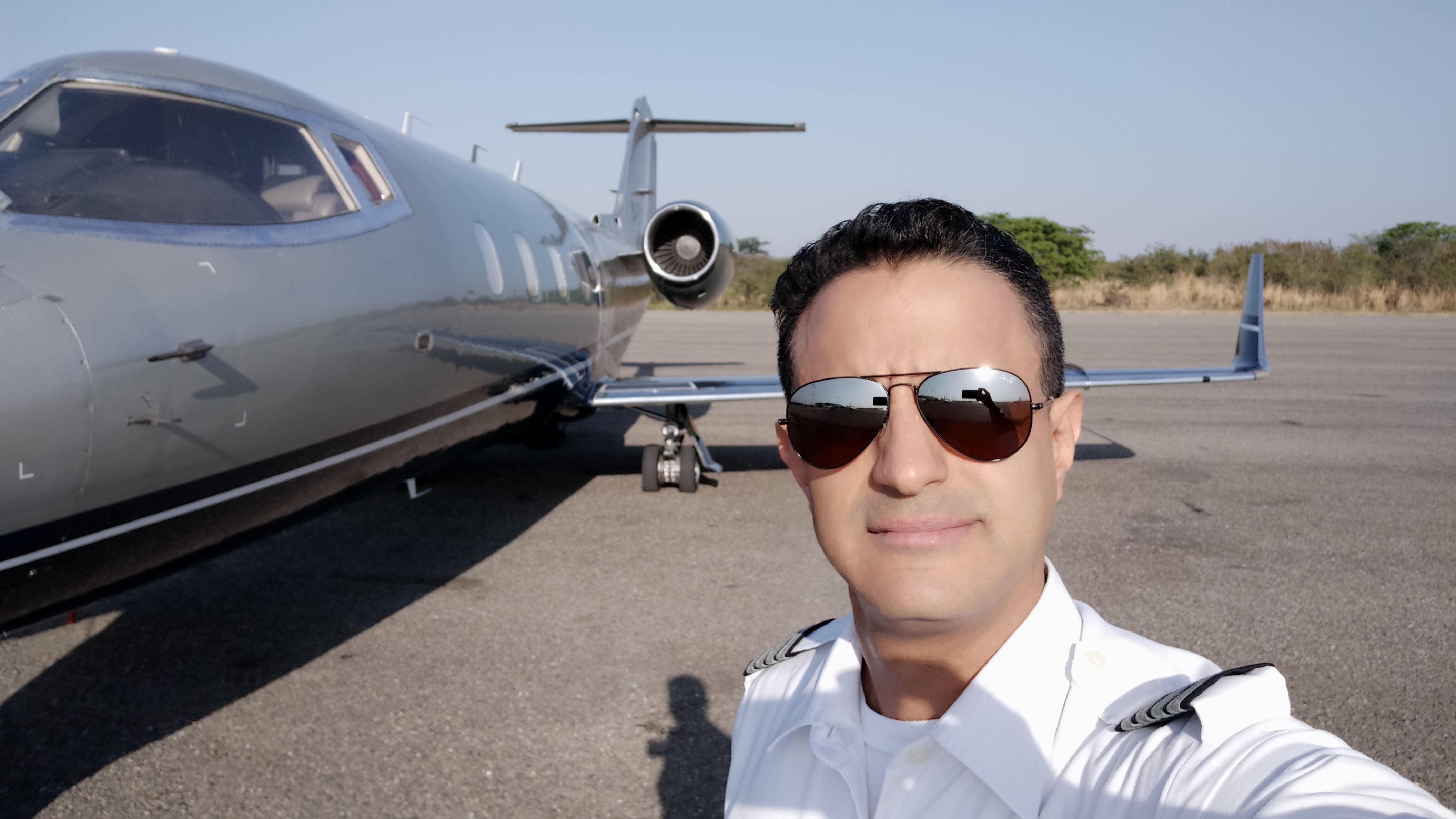
In 2017, I started working flying a King Air 100 owned by five Italian, long-time businessmen in Valencia with shoe factories who used the plane to go to Los Roques with their families on weekends. This solved my basic living expenses and helped support my family. Later, I started flying a Lear jet 55 as the second in command, which allowed me to come to Miami and buy everything that was not available in Venezuela. Along with other pilot colleagues, I found myself back on the streets fighting to free my country from the dictatorship, this time using my drones to photograph the marches and show them to the world, as well as provide aerial support to students and protesters to alert us of the position of the National Guard and the BAE with weapons of war.
Although I tried to remain anonymous, my photos were already circulating around the world, and the attack against the dictator Maduro happened.
Immediately, a group from the BAE came to my residence to arrest me. I was held and interrogated in a non-governmental facility for over 48 hours and threatened for my participation in the protests. My drone was confiscated, and I was left without shoes in a square far from my home. I returned walking, very scared. I still had one drone stored in the hangar where the plane was, and the country was in a tremendous upheaval.
The five Italians decided to sell the plane to another Italian very linked to the regime with years of contracts with PDVSA with his company Elektromek. This new owner was a pilot and, fortunately, I didn't have to quit, because he fired me few weeks after he bought the aircraft. Once again without a job, I had to dedicate myself to working with the drone I had left, doing aerial photography of houses for sale, promoting hotels, and extreme sports athletes. I never got a drone pilot license to avoid attracting the attention of the government.
I was flying on the Lear jet to Miami whenever I could to support my family's expenses. February 2019, the president of the Assembly is appointed as interim president of Venezuela through an open council, and I immediately started following him on social media and offering my support.
In February 2019, I was threatened to fly an official registration King Air B100 airplane because it is a rare plane with a Garrett Turbine, and there are just few captains with experience—which unfortunately included myself. They wanted me to teach two military pilots how to operate it, but I elegantly crashed the plane in Maracaibo, taking advantage of a landing gear failure, and put it on the runway with the landing gear partially down, making it run off the runway, causing a total loss. I got off with great satisfaction, feeling like I had brought down a plane on the regime. The investigative board couldn't take any actions against me, because a general who was loyal to the dictator Maduro's mistress was on board the flight.
In November 2019, my Alonso became ill and was hospitalized with a diagnosis of anemia and high blood pressure. He was discharged under treatment and an iron-rich diet to improve his values.
In December 2019, Alonso appeared emaciated and fainted at home. We had to take him to the emergency room, but a private medical center denied us assistance, because they didn't have a dialysis unit. We had to take him to a public health center where they refused to treat him because we didn't have a "carnet de la patria," and we had to pay in cash for him to be seen.
On January 2nd, 2020, the medical board informed us we needed to buy chemotherapy medication and Leukemia treatment in Colombia, and that they were going to experiment with our son because there were no resources for a kidney transplant.
On January 4, 2020, a colleague offered to bring us to Miami on a Lear Jet from Valencia because he had a flight scheduled for the next day, January 5, 2020. So, we had visas and an international medical insurance, we decided to do it—the right decision in a right time—even though our youngest son's visa had expired. We were afraid to renew it in 2017, because we saw many families return with their entire family's visas revoked when trying to renew the visa for the youngest child.
On the night of January 4, we asked for Alonso to be released, but the hospital director refused to give him to us because they knew about our plan to go to Miami, which we mentioned during our distress. During the changing of the hospital shift, a nurse helped us escape from the hospital near midnight.
We brought Alonso home, and his pediatrician removed the IVs from his arms and cleaned his hemodialysis catheter in his neck. My wife and I packed one suitcase for the three of us and a backpack. The same pediatrician lent us $500 in cash, because we only had $200 left in the account after weeks of crisis.
On January 5, 2020, we said goodbye to our 8-year-old son Rafael, leaving him with his maternal grandmother. We went to the airport to take the direct flight from Valencia to Opa Locka. In Miami, we stayed at a relative's house to sleep, and on January 6, 2020, we arrived at Nicklaus Children's Hospital with Alonso very sick, with his hemoglobin at 5.2 and a hospital-acquired bacteria in the catheter that was placed in a dirty operating room in Venezuela.
We lived in that wonderful hospital for almost a month. We are deeply grateful to God and this great nation for the life of our son, Alonso.
Upon leaving the hospital, we had raised some funds in the GofundMe campaign we started the same day we arrived, given our financial crisis. We had to rent a place to stay and buy a vehicle. At the end of March, I was offered a flight to return the Lear Jet to Valencia, as it was undergoing maintenance, and we had to go to the owner to bring it to Miami. This allowed me to bring food to my younger son, spend a few days with him, and organize the sale of the cars to sustain our expenses here in Miami.
I returned on April 6, 2020, to Fort Lauderdale Executive Airport, and then the quarantine began. Things became more complicated for the world and even more so for us. Our younger son was trapped in Venezuela with the airspace closed, and Alonso was undergoing prolonged medical treatment while waiting for a kidney transplant and undergoing hemodialysis three times a week. We lived the most distressing months of our lives waiting for the reopening of the airspace in Venezuela.
Our son has been confined to the apartment since January with his grandmother. They experience hours without electricity, days without water, and intermittent Internet. We made an appointment for his interview at the Embassy in Bogotá, which he will miss because it is on October 26 and 27 of this year, and Venezuela is still held captive with the airspace closed, and we have been surviving here for these months. The window to see our son Rafael again is rapidly closing. It distresses us that the regime's henchmen constantly knock on the door with notifications from the prosecutor's office, because the director of nephrology at the hospital reported us to the prosecutor's office for taking our Alonso out of the hospital without permission to bring him to the United States—"to the Yankee Empire" that saved our son's life!
In May 2020, Alonso, seeing us so worried, decides to handwrite a letter to Senator Marco Rubio, since he had already done a study on his biography in school for his support of Venezuela during these years. I must comment that since we arrived in January, we have been writing to our representatives in the United States requesting support, and we only received a response a few days ago to tell us that the passports are still valid.
In June 2020 Senator Marco Rubio responds to Alonso's call for help by contacting the Nicklaus Children Hospital, confirming everything, and since then we have been in contact with the Senator's team, who have supported us by contacting the embassy in Bogotá to search for options to coordinate Rafael's visa, since it is currently impossible to go personally to that city. The airspace is closed, and there is a danger on the border to try to cross on foot for a 9-year-old child and his grandmother.
In September 2020, the administrator of the Lear Jet 55 Registration YV 3164, on which I came to work on April 6, was scheduled to return to Venezuela on a direct flight to Maiquetía, and I was asked if I was willing to make the flight—an offer to which I said no, because the aircraft is in the process of being sold to new unknown owners who are evidently linked to the Regime, as they coordinated a permit to return in the current situation, and they hide it as a humanitarian flight, but, in reality, it is a direct link to the regime of Dictator Maduro. In view of the recent events where another plane loaded with weapons and money was detained in Miami, I felt that I should report it to the Senator's team, and so I did, I sent an email, and they contacted the corresponding authority. I requested anonymity discretion because my son Rafael is still in Venezuela. They intervened in the plane's flight, and I didn't hear anything else about it.
Currently, my eldest son's kidney transplant was successfully carried out in December 2020, with my wife as the kidney donor. My son Rafael is still in Bogotá with his grandmother, waiting for Humanitarian Parole since November 23, 2022.
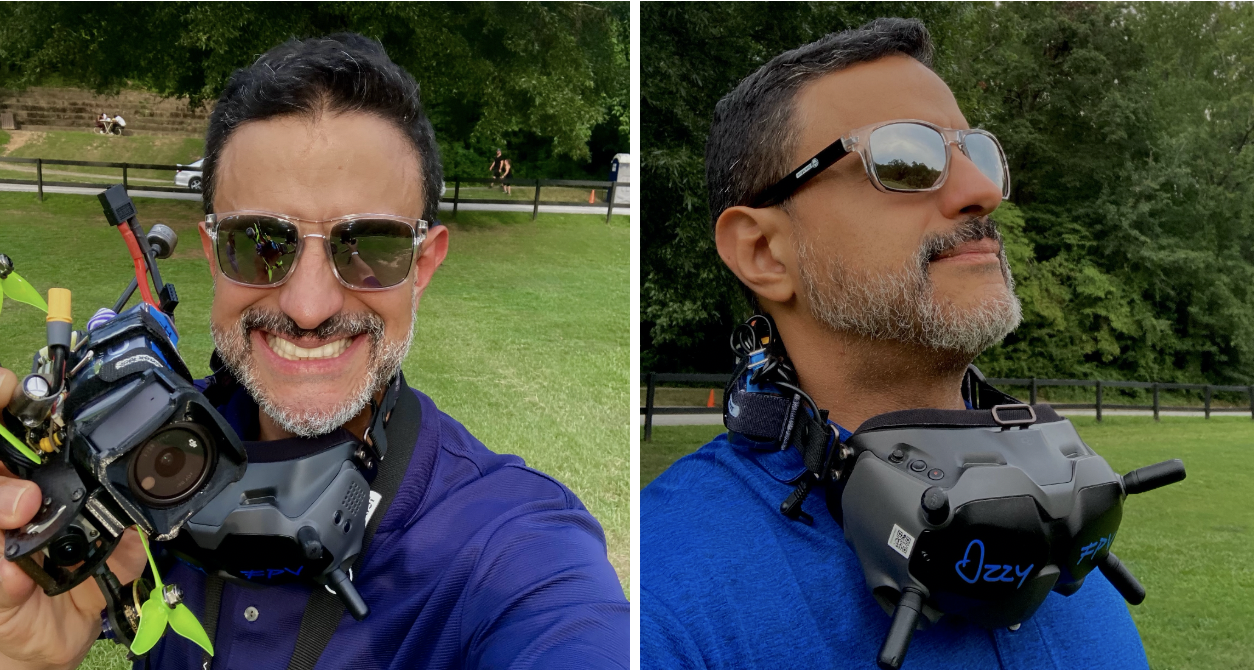
I wrote the Rotor Dynamics Project while sitting by my son's bedside during his hospital stay. I had to work in construction labor, where I suffered many health injuries. I have been studying online to prepare myself in the business language needed to defend meetings, as I was only a pilot before and found business meetings very challenging. After much perseverance and discipline, I managed to sign a subcontract with Drone Base for wind turbine inspections for which we have already completed all OSHA and Red Cross industrial safety courses. However, I do not know how I will face the expense scheme during execution until the first paycheck arrives. In Latin America, it is customary to request an advance, but from what I have seen here, things are different.
From the registration, logo, mission patch, website, safety protocol manuals, and standardization of the operation, everything has been created by me for Rotor Dynamics during family crisis to progress up in this country and contribute to gratitude for the life of our son Alonso, without resentment for the delay in the arrival of our little Rafael. The attitude of the Colombians in the US Embassy does not reflect the legitimate feeling of this great nation that has provided us with opportunities that we did not have in our own.
The history is still in progress…
